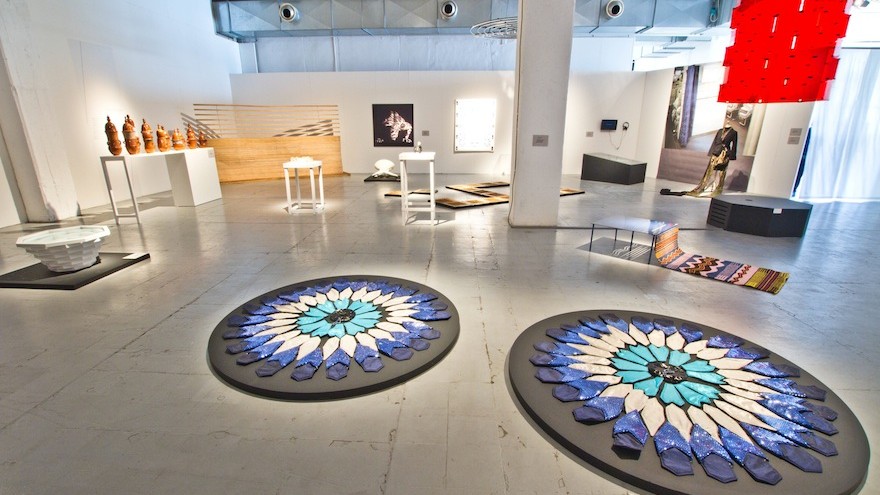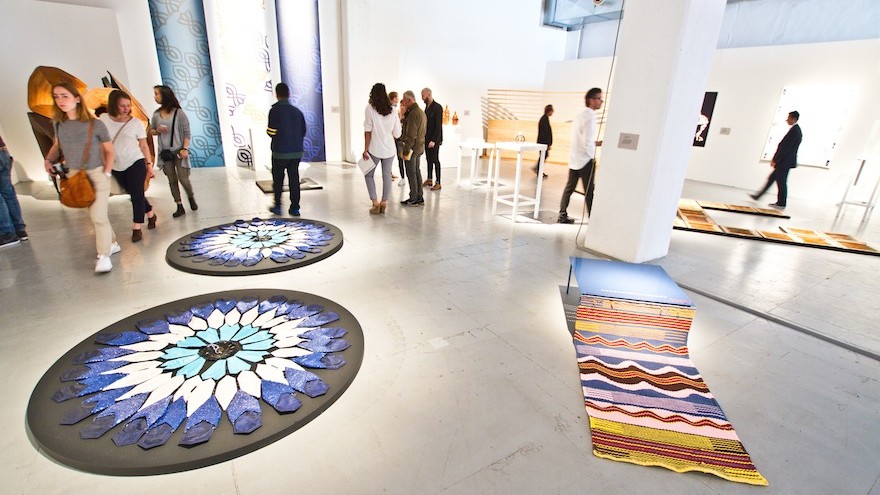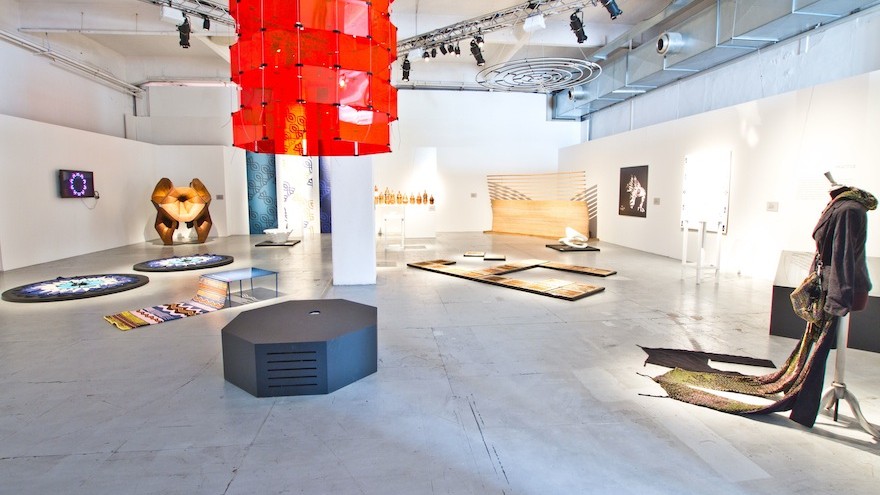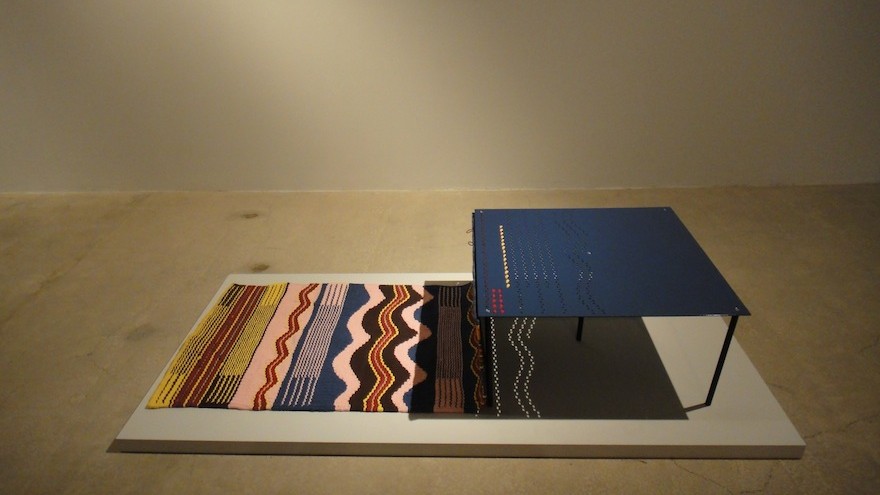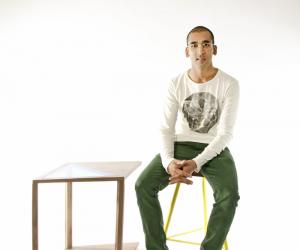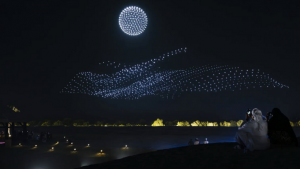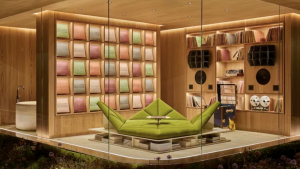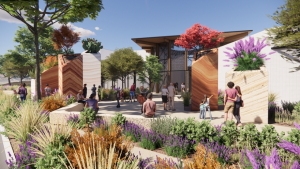Islamopolitan, an exhibition that encourages a conversation between Islam and design, was launched at the Maraya Art Centre in Sharjah, United Arab Emirates, in August 2014. Co-curated by Emirati designer Khalid Shafar and Giuseppe Moscatello, who manages the Maraya Art Centre, the exhibition was on show during Salone Del Mobile in Milan.
According to the curators, the title’s combination of the words “Islam” and “cosmopolitan” expresses the spirit of the exhibition. The pieces on show explore the relationship between Islam and design in aesthetic and meaning. There are 25 pieces by 23 designers from 12 countries; not all the designers are Arab and not all are Muslim.
Included in the exhibition is the Lineage Table by Cape Town-based designer Nawaaz Saldulker, a Design Indaba Emerging Creative from 2013.
The table’s design was inspired by family values.
“There is a beautiful saying that goes, if a family eat and pray together, they ultimately stay together. This was the starting point of my Lineage Table,” says Saldulker. “Lineage speaks about parentage, bloodlines and inheritance.”
Saldulker’s Lineage Table is simple in its design and easy to assemble: the tabletop and five legs (four corner, one central) are formed from mild steel. A woven “musallah”, a Muslim prayer rug, can be attached to either side of the table and can be used both traditionally, for daily prayers, or as a rug that goes underneath the table. When folded underneath the Lineage Table the rug can be attached to the opposite side, creating a closed circle of fabric around the table. The musallah is woven from upcycled t-shirt off-cuts.
The tabletop has a perforated pattern, which creates dappled light and shadow on the floor below, mimicking the design of the rug.
After its premiere exhibition in the UAE, Islamopolitan moved to the Istanbul Design Week in November, and then to Salone Del Mobile during Milan Design Week 2015. The exhibition will remain in Milan as part of the Milan Expo 2015.

